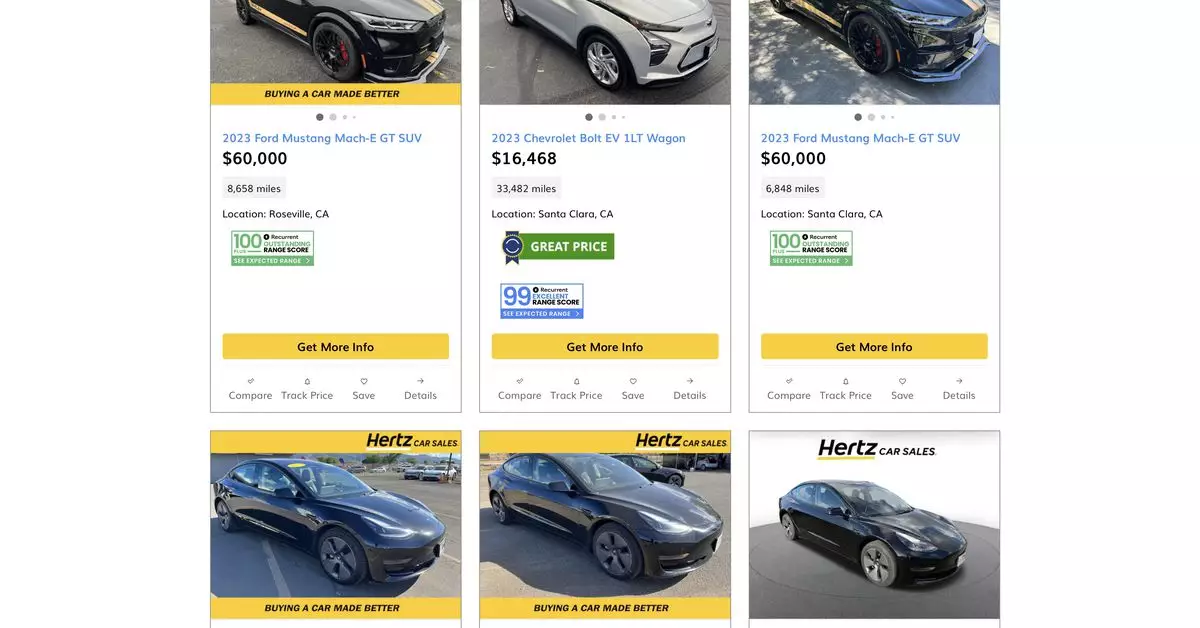Hertz has recently unveiled an intriguing strategy aimed at boosting vehicle sales, particularly in the electric vehicle (EV) segment. As part of their initiative, the rental giant is reaching out to customers currently renting electric vehicles, offering them the chance to purchase these cars at competitive prices instead of returning them at the end of their rental period. This initiative marks a significant move in the evolving electric vehicle landscape and flexibly adapts to the growing curiosity surrounding sustainable transportation.
The decision to reach out to renters appears to be a calculated response to the fluctuating tides of customer interest in electric vehicles. One customer who rented a 2023 Model 3 shared their experience on Reddit, stating that Hertz offered them the car for approximately $17,913. Despite this figure being palatable, it reflects the realities of the used-car market, especially given that the rental had around 30,000 miles on it. Customers might see the appeal in owning a vehicle they have already grown accustomed to, yet concerns about long-term reliability and potential repairs loom large in such decisions.
Another rental experience showcased similar trends, where a Chevy Bolt was offered at $18,442, while a Polestar 2 was priced at $28,500. Each of these prices aligns closely with current listings on Hertz’s Car Sales site, indicating a transparent pricing strategy. However, the limited warranty of just 12 months or 12,000 miles may induce apprehension among potential buyers, further complicating their purchasing decision.
Hertz’s communications director Jamie Line illustrated that this approach is not solely aimed at EVs; rather, it reflects an ongoing strategy to connect rental customers with their sales division. By tailoring offers to current renters, Hertz aims to cultivate stronger customer relationships while simultaneously boosting awareness of their sales offerings. This dual approach addresses the potential for impulse buys by people who find themselves enjoying the vehicle they’ve rented.
However, Hertz’s ambitious plans to electrify their fleet have faced significant hurdles, particularly given earlier reports of dwindling consumer demand and repair challenges. Last year, they even postponed their electrification goals, citing practical issues associated with models like the Tesla Model 3. Mixed messages, such as their decision to discontinue purchasing Polestar 2 vehicles, have added to the intrigue surrounding their long-term strategy to maintain relevance in a rapidly changing automotive landscape.
The Bigger Picture: Market Dynamics and Future Outlook
Ultimately, Hertz’s innovative sales tactics amidst these dynamic market conditions highlight the challenges and opportunities in the EV sector. With the automotive world increasingly leaning towards sustainable options, car rental companies must adapt quickly in response to customer demand and operational realities. The transition from rental to ownership for consumers could signify a broader acceptance of electric vehicles, paving the way for rental companies to maintain their foothold in a shifting marketplace.
As Hertz facilitates this novel purchasing pathway, it will be crucial to monitor how customer reactions unfold. Will this strategy bolster the company’s bottom line while simultaneously contributing to the broader acceptance of electric vehicles? Only time will tell, but it certainly presents an ambitious game plan in the electrifying future of transportation.

